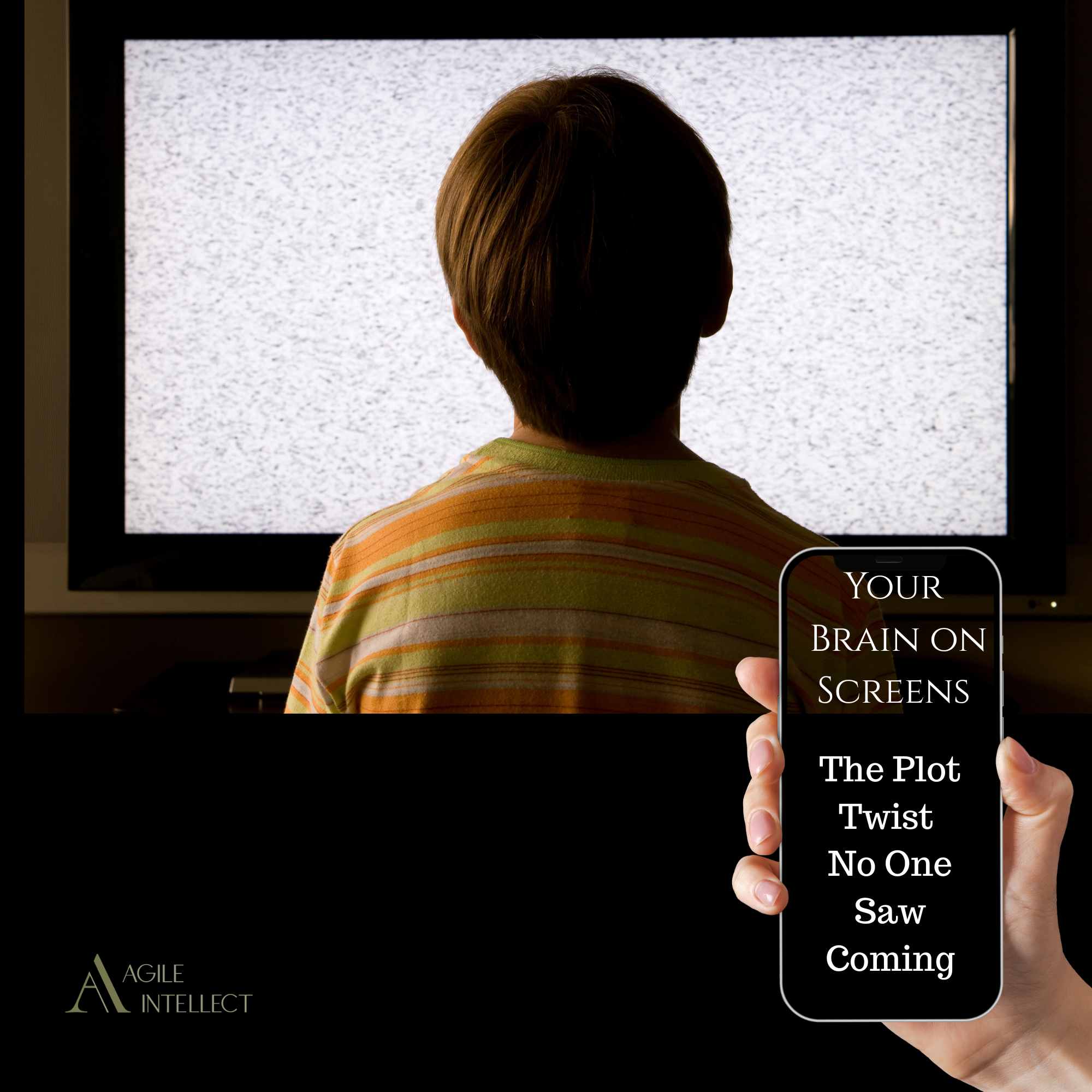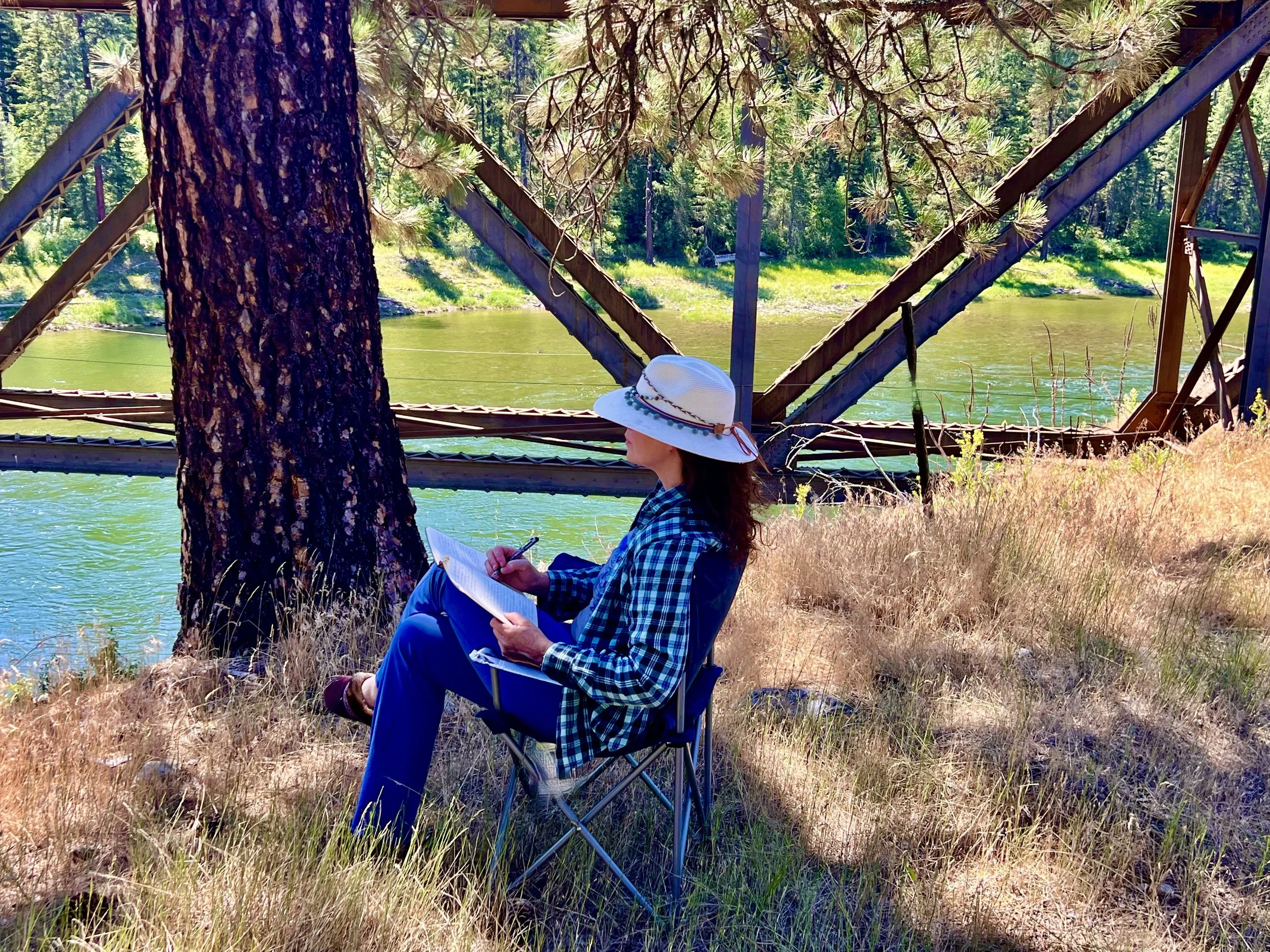Your Brain on Screens: The Plot Twist No One Saw Coming
Remember when our parents thought sitting too close to the TV would make us go blind? Well, turns out our parents were worried about the wrong thing.
The real plot twist? Our screens aren't ruining our eyes—they're literally rewiring our brains.
The Great Brain Heist of the 21st Century
Picture this: You're crushing it at work, but somehow you can't remember where you put your coffee mug (again). You pride yourself on multitasking, yet find yourself reading the same email three times. Sound familiar?
Here's what's actually happening inside your noggin: Every swipe, scroll, and notification is playing your brain's reward system like a Vegas slot machine. Recent research shows that gaming and social media trigger the same dopamine pathways as cocaine—except instead of white powder, we're getting high on blue light and endless feeds.
The "Just Five More Minutes" Syndrome
Let's be honest—we've all been there. You pick up your phone to check the weather and suddenly it's 2 AM and you're watching videos of cats that look like celebrities. But here's the kicker: This isn't a willpower problem. It's a neuroplasticity hijacking.
Scientists discovered that excessive screen time actually changes the physical structure of our brains. The areas responsible for attention, empathy, and complex memory? They're literally shrinking. Meanwhile, the stress response system is working overtime, pumping out cortisol like you're being chased by a saber-toothed tiger—except the tiger is your inbox.
The Age Factor: Why Your Teen's Moodiness Might Not Be "Just a Phase"
Here's where it gets really interesting (and a bit scary):
For the Young Guns (Under 18): Kids spending more than 2 hours daily on screens show a 42% higher risk of being overweight and perform worse on cognitive tests. Their developing brains are like sponges—but instead of absorbing knowledge, they're soaking up overstimulation.
For the Midlife Mavericks (That's Us!): While our brains are more resilient than kids', we're not off the hook. That "brain fog" you blame on aging? It might just be digital overload. The good news? Adult brains can bounce back faster with the right interventions.
Your Digital Detox Playbook
Ready for the plot twist within the plot twist? You don't have to throw your devices in the ocean (though the thought is tempting). Here's your science-backed action plan:
1. The Kaizen Approach 🎯.
Instead of going cold turkey, reduce screen time by 30 minutes each week. Your brain won't even notice it's being retrained. Sneaky? Yes. Effective? Absolutely.
2. Create "Speed Bumps" 🚧
Put a rubber band around your phone. Use that extra task to interrupt the habit. Better yet, use a thick rubber band and label it , ”Caution! Danger Zone! Or, change your lock screen to ask: "What for? Why now? What else?" These micro-interruptions break the automatic reach-for-phone habit.
3. The Great Swap: 🔄
Replace screen time with activities that give your brain the good dopamine:
Morning scroll → Morning stroll (Green time reverses screen time damage)
Netflix binge → Creative project (Drawing, music, or that dusty guitar in your closet)
Social media → Social reality (Remember faces that aren't filtered?)
4. The Bedroom Ban 🚫
Make your bedroom a screen-free sanctuary. Those emails can wait until morning—your melatonin can't. Blue light suppresses sleep hormones for hours, turning you into a zombie who thinks they're a night owl.
Your 7-Day Brain Boss Challenge
Here's your mission, should you choose to accept it:
Day 1-2: Track your screen time without judgment (prepare to be shocked)
Day 3-4: Implement one "speed bump" strategy
Day 5-6: Replace 30 minutes of screen time with a brain-healthy alternative
Day 7: Celebrate with a completely screen-free evening
The Bottom Line
Your brain is incredibly resilient. Those neural pathways that screens have hijacked? They can be reclaimed. The attention span you think you've lost forever? It's just on a really long coffee break.
The beauty of neuroplasticity is that it works both ways. Just as screens can rewire your brain for distraction, you can rewire it back for deep focus, genuine connection, and that sharp-as-a-tack thinking that made you successful in the first place.
Remember: The best time to improve your mind was yesterday. The next best time? Right after you finish reading this article. (See what I did there? 😉)
Your Brain Boss Move: Pick ONE strategy from this article and commit to it for the next week. Your future self—the one with laser focus, better sleep, and actual free time—will thank you.
Ready to reclaim your cognitive edge? Become a healthy brain ambassador and join thousands of professionals transforming their brain health with science-backed strategies. Visit Agile Intellect for your personalized FITBRAIN assessment with Neeli Clute. I would love to chat and get to know you…yes, on a screen, but screens can be a tool for connection when used wisely.
What's your biggest screen time challenge? What Great Swap are you proud of? Drop a comment below—let's solve this together!
Here is my Great Swap as I journey to Alaska:
Journaling in nature is always a great brain booster. (Author at Clark Fork River, MT)
Morning Email review → Nature journal reflection
The sun is shimmering on the water of the Clark Fork River flowing along below me. The smell of fresh water wraps around me in gentle gusts, moving the golden grass in waves. The birds are calling, some chittering as they ride the swirl of wind streams rising from the water, feasting on insects drawn to the sage and evergreen waters that hold life and predators above and below the surface. The iron trusses of the railroad bridge hold ample space for bird nests, creating a community of what look like red-winged blackbirds or their passerine cousin, the western chipping sparrow.
I’m spellbound when a calliope hummingbird buzzes next to the table I am writing on. It hangs, suspended mid air as its wings create a lighting-fast blur. The green iridescent feathers shimmer in the light as it delivers a morning greeting inches from my journal. I freeze in awe, hoping it will stay.
These are the moments that define beauty in my day, making this adventure rich in memory. A reminder of the steady pace of nature that goes on without our notice as we tuck ourselves away from the vibrant life that pulses deeply in the world beyond our insulated walls. I am reminded of the loss of connection to the natural rhythm that provides the sustaining elements of our world.
We focus our attention on tiny rectangular screens that bring the digital world to the center of our existence. We spend an average of 5 hours and 16 minutes per day on our phone, regardless of our age.
This is not a young people’s problem.
It is a human habit that is changing our brains. I, for one, am shifting the balance in favor of healthy habits that build the brain, not diminish it. I hope you will join me.
What have you done today that will remain as a memory defining a day in your life?
Would you prefer to recall the Netflix series you binge-watched, or a moment where you were the star of your own show?


